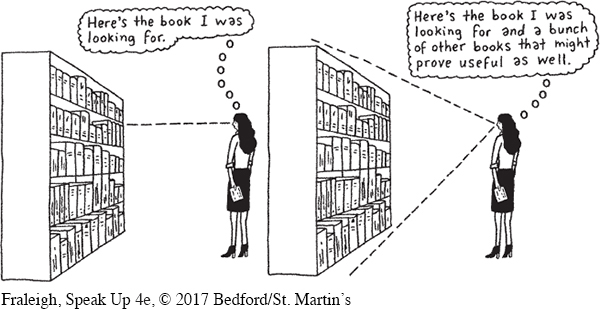Books
Books are one of the best systems that humans have ever developed for storing and conveying information. They have important advantages as information sources and often are the best place to start your research. Because books have been the primary tools for sharing and storing ideas throughout human history (for example, a surviving part of the Egyptian Book of the Dead, written on papyrus, dates from the sixteenth century BCE), many of today’s books contain thousands of years of accumulated human knowledge. In addition, many books are written by people with extensive expertise in their subject—
Books are longer than most other information resources and thus are likely to provide more in-
To find books related to your topic, start by searching your library’s electronic catalog by subject. Such catalogs are usually available online, allowing remote access; you also can search online catalogs by author name and book title. After entering your search terms, you’ll see a list of links specifying relevant book titles. By clicking on these links, you can find bibliographic information as well as details on where in the library the books are located and whether certain titles have been checked out or are available in the stacks.
Another way to check books out from the library is to use your digital e-
Finally, here’s a tip followed by some expert library users. After you find some books on your topic in a library’s catalog, go into the library stacks, and locate the books you have identified. But don’t just pull the books you found and leave; instead, browse through some of the books nearby. Because libraries organize nonfiction books by topic—
Page 200
